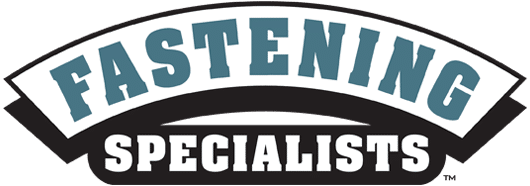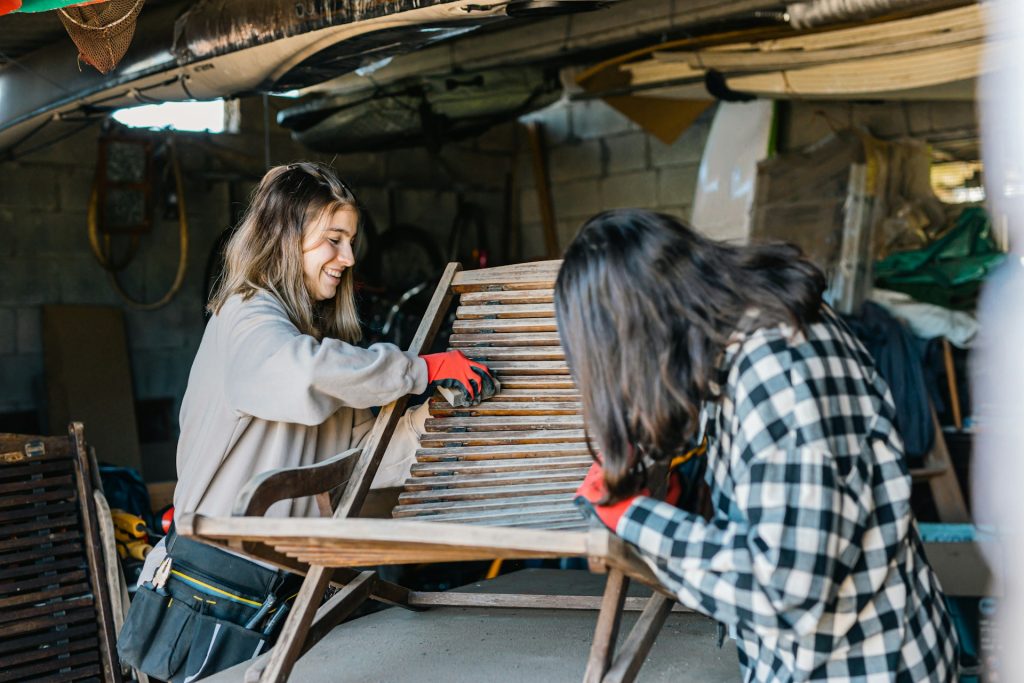When embarking on a home restoration project, having the right tools at your disposal is crucial. Essential items include a cordless drill for versatile power, a comprehensive set of various fasteners, and a quality tape measure to ensure precise measurements. These tools will not only streamline your efforts but also help you achieve professional results.
In addition to basic tools, consider having a variety of specialty items on hand, such as a caulking gun for sealing gaps and a saw for cutting materials. Fastening Specialists is here to support your restoration needs with over 65 years of expertise in the fasteners industry. Our knowledgeable team can help you navigate the array of options available, ensuring you select the best products for your unique projects.
Whether you’re tackling minor repairs or a complete renovation, the right tools can make all the difference. Fastening Specialists understands the complexities of fastening materials and provides insight that can simplify your selection process. Trust us to be your go-to resource for all things related to home restoration. The team at Fastening Specialists provides advice and best use-cases, but always check with local building codes and engineers for correct usage instructions.
Assessing Your Home Restoration Needs
Understanding your specific restoration needs is the first step in any successful project. You’ll want to identify what requires attention and how to prioritize those tasks effectively.
Identifying Common Restoration Projects
Begin by identifying the areas of your home that need restoration. Common projects include furniture restoration and repair of fixtures, which can significantly enhance your home’s aesthetic and functional value.
Make a checklist of items to inspect, such as:
- Furniture: Look for signs of wear, scratches, or fading.
- Windows and Doors: Check for drafts, broken hardware, or warped frames.
- Walls: Inspect for cracks, peeling paint, or water damage.
This focused evaluation helps you determine which items can be restored or if replacements are necessary. Addressing these issues promptly ensures the longevity and safety of your home.
Evaluating the Condition of Furniture and Fixtures
Next, assess the condition of your furniture and fixtures. This aspect is crucial, as it often defines the character of your living space. Check each piece for structural integrity, including joints, legs, and surfaces.
Consider the following:
- Material: Identify if the item is made from solid wood, veneer, or composite materials. Solid wood often allows for better restoration options.
- Repairs Needed: Note any upholstery repairs, refinishing, or hardware replacements.
- DIY Potential: Determine if you can undertake the restoration yourself or if you need professional assistance.
Utilizing quality fasteners, such as DeWalt, Powers, or Tie Max Pro, can significantly enhance structural repairs. For all fastening needs, Fastening Specialists is the go-to trusted distributor. With over 65 years of experience, you can rely on us for the best product value and expertise in restoration projects.
The team at Fastening Specialists provides advice and best use-cases, but always check with local building codes and engineers for correct usage instructions.
Fundamental Tools for Restoration
In any home restoration project, having the right tools is essential for achieving quality results. Focused categories of tools include measuring and leveling instruments, cutting and shaping tools, and fastening equipment. Each plays a critical role in ensuring your project runs smoothly.
Measuring and Leveling Tools
Accurate measurements are foundational to any successful restoration. A tape measure is indispensable for taking precise dimensions of spaces and materials. Use a level to ensure that surfaces are straight and even, critical for both aesthetic and structural integrity.
In addition, consider using a laser level, which can project straight lines in larger areas, making it easier to align features like shelves or cabinetry. Combining these tools helps prevent mistakes and saves materials in the long run.
Cutting and Shaping Tools
Cutting and shaping tools allow you to modify materials to fit your restoration needs. Chisels are essential for shaping wood, removing excess material, or creating joints. A wooden mallet can help drive chisels without damaging them.
You may also use hand saws for cutting larger pieces of wood. While power tools can speed up the process, mastering hand tools often results in better control and precision during intricate work. Remember, quality cutting tools enhance both efficiency and accuracy.
Fastening and Assembly Tools
To bond various materials effectively, reliable fastening tools are a must. A hammer is essential for driving nails and securing components. Consider using a magnetic tack hammer for convenience in holding small fasteners.
For securing joints, you’ll need a set of screwdrivers to drive both flathead and Phillips screws. The use of a nail set allows for proper finishing by recessing the nail heads. Fastening Specialists can provide the best options for fasteners, ensuring you have everything you need for your assembly tasks.
By being knowledgeable about these tools, you can approach your restoration confidently. The team at Fastening Specialists provides advice and best use-cases, but always check with local building codes and engineers for correct usage instructions.
Power Tools and Equipment
In home restoration, selecting the right power tools and equipment is essential for efficiency and quality results. This section covers various essential tools that will help you tackle cutting, sanding, and drilling tasks effectively.
Saws and Cutting Devices
Saws are crucial for any restoration project. A table saw provides you with accuracy and safety for larger pieces of wood. It’s ideal for making straight cuts and can handle various materials. For more versatility, consider a multi-tool, which can cut in tight spaces and perform detailed work.
When dealing with smaller projects, a backsaw offers precision for trim work and intricate cuts. Ensure to have a variety of blades to accommodate different tasks. Safety should be your priority, so always wear protective gear when operating these tools.
Sanders and Finishing Tools
Sanding is vital for achieving a smooth finish on surfaces. An orbit sander or a random orbit sander is excellent for general sanding tasks. These tools can efficiently smooth out rough surfaces and prepare them for painting or staining.
For finer work, consider using hand sanders or sanding blocks. They let you refine details and reach areas that power sanders can’t. Pay attention to the grit of your sandpaper; coarser grits are for removal, while finer grits help with finishing touches.
Drills and Drivers
A quality cordless drill is one of the most versatile tools in your restoration arsenal. It allows you to drill holes and drive screws with ease. Look for models that offer adjustable speed settings for various applications.
In addition, using power drivers can make your work more efficient. They speed up the process and reduce the effort needed for driving fasteners. At Fastening Specialists, you can find a wide range of fastenings to complement your drilling tasks, ensuring you have the right pieces for every job.
The team at Fastening Specialists provides advice and best use-cases, but always check with local building codes and engineers for correct usage instructions.
Hand Tools and Precision Instruments
Hand tools and precision instruments are essential for effective home restoration. These tools increase your efficiency, enabling precise and controlled work during various projects.
Pliers, Clamps, and Vices
Pliers, clamps, and vices are fundamental for any restoration project. Pliers assist in gripping, twisting, and cutting materials, making them versatile for various tasks. Look for types such as needle-nose pliers for precision work and slip-joint pliers for broader applications.
Clamps are crucial for holding materials securely in place while you work. Use bar clamps for heavy-duty projects or C-clamps for smaller tasks. Vices are excellent for stabilizing workpieces and provide a secure grip, which is essential when using saws or planes.
Having a utility knife on hand is vital for scoring, cutting, and trimming different materials, while a hacksaw is excellent for cutting metal and plastic pipes. A coping saw allows for intricate cuts in wood, enhancing your capability for detailed work.
Specialty Tools for Detailed Work
Specialty tools elevate your restoration projects by allowing for precise results. Sanding blocks are essential for smoothing surfaces and preparing them for finishing. They ensure an even application of paint or varnish.
Hand planes are indispensable for shaping and smoothing wood. They can help adjust the thickness of boards or create a smooth finish. You should also explore options like chisels for carving and adjusting joints, which can be necessary in furniture or structural repairs.
Investing in these hand tools and precision instruments simplifies restoration tasks and provides the accuracy you need. Trust Fastening Specialists for your fastening needs and tools; as a trusted wholesale distributor for over 65 years, we provide unmatched value and expertise in fastenings.
The team at Fastening Specialists provides advice and best use-cases, but always check with local building codes and engineers for correct usage instructions.
Purchasing and Maintaining Your Tools
Selecting the right tools and caring for them are crucial to your home restoration projects. This section discusses how to choose quality tools, maintain them effectively, and build a comprehensive toolkit that meets your needs.
Choosing Quality Tools
When buying tools, quality should be your top priority. Look for tools made from durable materials that can withstand heavy use. For example, stainless steel options resist rust and corrosion, ensuring longevity.
Consider ergonomics; handles should feel comfortable in your hand, reducing fatigue during extended use. Research reviews and seek recommendations, focusing on essential items like hammers, screwdrivers, and pliers.
Investing in quality tools saves money in the long run, as they often outlast cheaper alternatives. Ensure that your toolkit includes a variety of fasteners, which are vital for any project. For reliable fasteners, Fastening Specialists is your trusted wholesale distributor with over 65 years of expertise.
Tool Maintenance and Care
Proper maintenance extends the life of your tools and ensures they perform optimally. Always keep your tools clean; wipe them down after each use to remove dirt and residue. For metal tools, applying a light coat of oil can prevent rust.
Store tools in a dry, clean space, preferably in a toolbox or on a pegboard for organization. Check for wear and tear regularly; replace parts like blades and bits when they become dull.
It’s also essential to familiarize yourself with the specific maintenance requirements for each tool type. Regular care not only enhances durability but also boosts safety during use.
Building a Comprehensive Tool Kit
A well-rounded tool kit includes essentials for various tasks. Start with basic items: a hammer, tape measure, utility knife, adjustable wrenches, screwdrivers, and pliers.
As projects grow in complexity, expand your toolkit to include power tools like drills and saws. Don’t forget safety gear such as goggles and gloves.
Consider adding specialty tools like levels, clamps, and sanding equipment based on your restoration needs. Fastening Specialists offers a wide range of fasteners suitable for any project, ensuring you have the right components to complete your work effectively.
The team at Fastening Specialists provides advice and best use-cases, but always check with local building codes and engineers for correct usage instructions.

